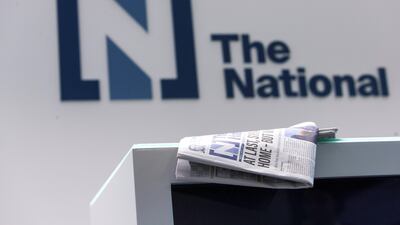One of the most challenging developments in journalism in recent years has been the increasingly divisive and partisan nature of the world’s media. Confronted by accusations of blatant bias by the new US president – and counter-accusations in the opposite direction – print and broadcast journalism increasingly resembles a proxy-war for opposing political ideologies. This phenomenon coincides with the explosion of digital news platforms and highly politicised, low-budget anti-establishment "real news" channels on YouTube.
The impact has been the erosion of the public’s level of trust in journalism. And not just in the US. In the UK, a recent study found there has been a significant fall in those who agree that the news can be trusted, from 50 per cent to 43 percent in 12 months.
The question is, can journalism rise to the challenge and regain the trust that has been lost?
Of course it can, however journalists need to seize back their industry from those who have hijacked it. And many media organisations are battling to do so, specifically those that have realised that what was once seen as a threat – digital and social media – is actually an opportunity.
For those of us seeking the facts, the "real story" sits amid conspiracies and lazy reporting. Getting to the truth and trusting it is harder than ever. Yet it is because of the muddied waters that traditional investigative journalism is so important and so valuable. It has the power to hold a mirror to humanity – and, vitally, hold those in authority to account.
Reporting that is properly substantiated and evidence-based is an increasingly rare and valuable commodity. What journalists print, broadcast or blog is considered by, still, many as the truth. And the information is shared with family, friends and colleagues.
So there is a huge responsibility on media to make sure it is accurate.
This means anyone in journalism, in any form, must understand the inherent value of truthful, fact-based and fair reporting. Yet in the context of an increasingly digitised news environment where news is updated by the minute, delivering well-researched facts that stand up to analysis is harder than ever. But it is the role of organisations such as The National and twofour54 to lead the way on this.
Getting back to basics requires editorial integrity and a desire to do the job without prejudice. It means pausing to reflect and fact-check before filing a story. It means questioning what is said and seeking alternative opinions. And as a basic principle it means refraining from reaching conclusions based on opinion, unless they are supported by facts. This all needs to happen quickly – which is why many online news outlets report breaking news and evolving stories in bite-sized, Twitter-style updates – just the facts.
Broadcast news outlets have been up to speed for some time and now we are increasingly seeing traditional print publications do the same with a renewed commitment to analytical content and commentary. The digital revolution that has allowed fake news to proliferate also provides opportunities for quality reporting to flourish as it reaches ever-greater numbers of people who digest current affairs online.
For those seeking instant, trustworthy news across digital platforms, the respected print brands are increasingly delivering online. Readership of print dailies has been falling for many years but increases in online readership are beginning to offset those losses, particularly for quality titles. Indeed, while many international news outlets offer free 24/7 news apps, there is an increase in the number of readers who are willing to pay for premium services to receive quality comment and analysis by highly respected journalists. Figures now show that one in four people read an online news brand each week. In a climate of distrust, there appears to be an increasing appetite for well-researched, well-written news.
Maintaining quality and fact-based reporting is crucial if the world of journalism is to rise above fake news. Part of the solution lies in training and in placing value on what really matters – accuracy. For societies that wish to nurture the next generation of journalistic talent, this means that universities and colleges that teach journalism must redouble their efforts on quality journalism irrespective of the pressures of today’s fast-paced digital media environment.
There also needs to be emphasis on collaboration between media outlets and professionals working in the industry; and a shared belief that what really matters is truth and impartiality. Media organisations have to set themselves high standards – and then deliver by nurturing the talents within their ranks as well as supporting future generations.
Communities such as Abu Dhabi’s creative hub, twofour54, provide an environment where journalists, social media experts and creative professionals can work together, with an emphasis on quality-led content. Working together in the pursuit of quality journalism is one of the goals at twofour54. Environments such as this thrive on quality because it is a commercial environment where fake news cannot survive long-term. The community itself also enables freelance journalists to succeed through a shared interest in passionate, fact-based work. Properly researched and substantiated writing is not only sought out by readers in today’s culture of fast news – it is crucial in the pursuit of the truth.
Maryam Al Mheiri is CEO of twofour54 and Media Zone Authority – Abu Dhabi

